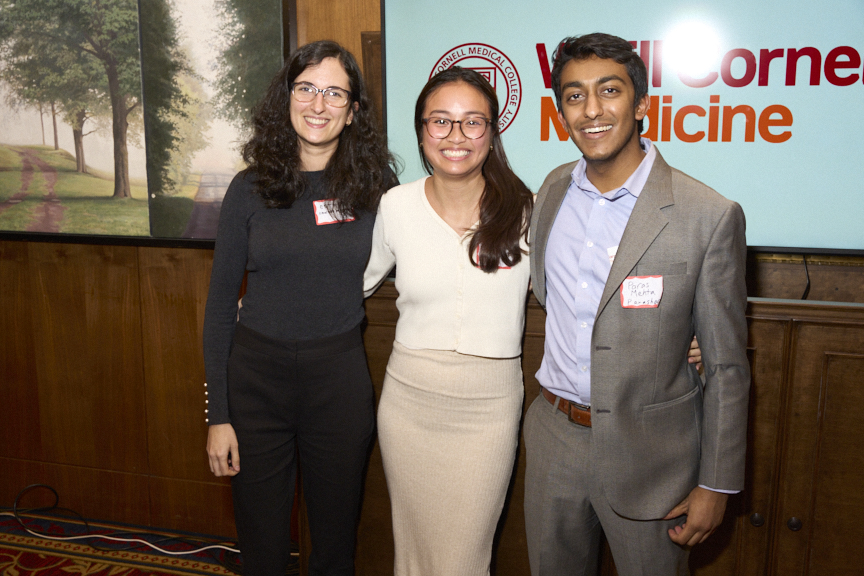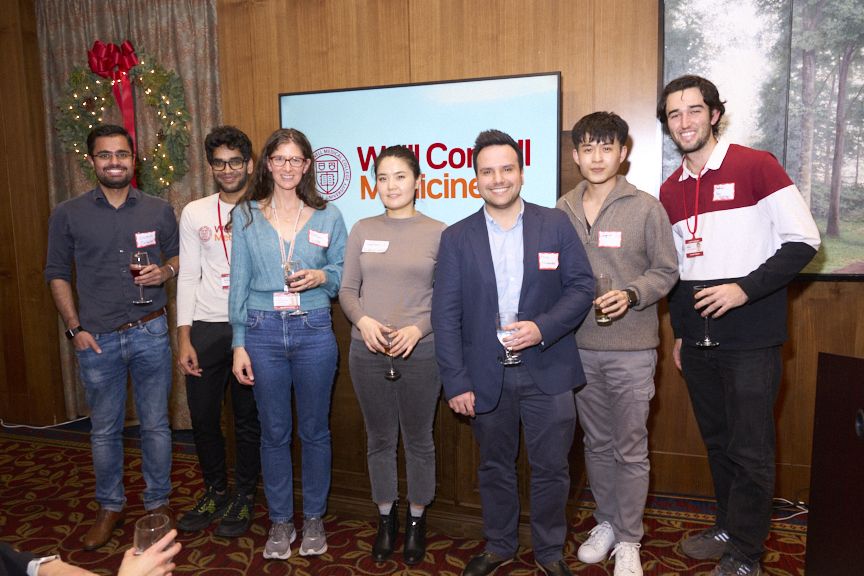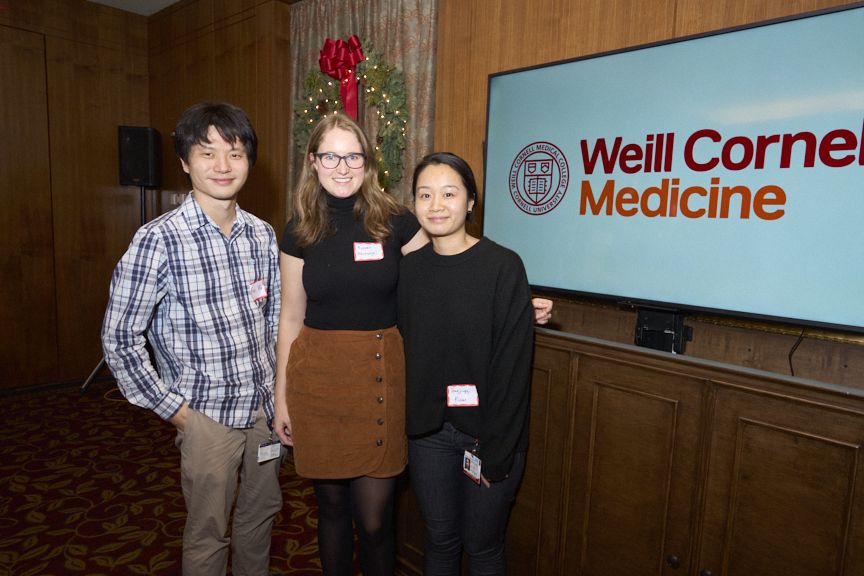
BioVenture eLab’s intense 15-week Accelerating BioVenture Innovation (ABI) course culminated in an energizing pitch competition on Dec. 6 at Griffis Faculty Club.
Throughout the course, over 40 speakers, lecturers and industry mentors shared their talents and experience with the cohort. Participants consisted of graduate students from Weill Cornell Graduate School of Medical Sciences, Gerstner Sloan Kettering Graduate School of Biomedical Sciences and The Rockefeller University, which is known as the “Tri-Institutional community” or “Tri-I”, as well as postdocs, clinicians and graduate students from other Cornell campuses.
Participants worked in 14 multidisciplinary teams to develop their business plans and were mentored by pharmaceutical executives, investors, corporate law and intellectual property attorneys, digital health experts, seasoned medical device operators/manufacturers as well as students from Cornell’s Executive M.B.A./M.S. in Healthcare Leadership program. Six finalist teams won a chance to pitch their business plans to a panel of early-stage investors for seed funding. According to BioVenture eLab Director, Loren Busby, all students concluded their ABI course with a more thorough understanding of elements of a startup pitch and the rigors of the biomedical entrepreneurial journey.
The six finalist teams covered a wide array of inventions sourced from the Tri-I’s technology licensing offices. The inventions included precision microbiota for ulcerative colitis, immunotherapy targeting triple negative breast cancer, AI learning for small data sets to improve efficiency and reduce fatigue for radiologists, nanofiber peptide drug delivery technology, nanoparticle for RHAMM+ cancers to suppress metastasis, and gene therapy for food allergies. Each team summarized the problem and solution narrative supporting its invention, its novelty compared with competitors, a 24-36 month research and development plan, and proposed budget in the context of their total financing needs, all under seven minutes. Judges raised questions and provided constructive criticism during the Q&A after each presentation.
First place was awarded to Parashoot, a team with a plan to bring precision medicine to gut microbiota targeting therapies for diseases such as ulcerative colitis (UC). Patients with UC have different gut microbiota compositions than healthy individuals, which play a role in the progression and severity of the disease. By comparing patients who do and do not respond to the fecal microbiota transplant, Weill Cornell Medicine inventors have identified the bacterium Odoribacter splanchnicus as the key ingredient to improving the treatment’s efficacy. In addition, mice with UC also showed improvement in body weight maintenance and survival after being treated with Odoribacter splanchnicus. Parashoot proposed to package this bacterium into a non-invasive oral capsule.

Team October
October and AuRhamm, both with innovations in cancer treatment, were named second and third places, respectively. October put forward a plan to develop next-generation immunotherapies that target cancer’s environment instead of the bulk tumor itself. Looking specifically at the fast-progressing, difficult-to-target and highly deadly triple negative breast cancer (TNBC), October offers a first-in-class bispecific immunotherapeutic antibody called 4T-Trap as an alternative treatment. 4T-Trap restores the immune system by selectively binding immune cells and enhances cancer cell death by remodeling its vasculature.
AuRhamm plans to tackle cancer by suppressing solid tumor metastasis with nanotherapy. Therapeutically, it is easier to inhibit an effector than to activate a suppressor of cancer. Researchers discovered a novel hyaluronic acid receptor, RHAMM, which promotes metastasis in different cancers. AuRhamm’s proposed product is a gold-coated nanoparticle that can penetrate deeply into solid tumors. Layered with a small RNA that targets a metastasis promoting gene and a peptide that induces tumor cell death, this nanoparticle would be the only therapeutic in development for RHAMM+ cancer patients.

Team AuRhamm
At the beginning of the semester, Loren Busby challenged the ABI participants to define what entrepreneurship meant to them. Out of over 80 responses, one proposed definition was called out: “creating something that doesn’t exist by identifying the gaps and creatively looking for a solution that works for the target audience.”
“All of the ABI participants are aspiring entrepreneurs doing exactly that – creating an innovative solution for an unmet need in medicine,” Busby said after the event. “Armed with their new knowledge and skills in entrepreneurship and storytelling to communicate their ideas, they are prepared to make contributions to academia or industry at their choosing.”
BioVenture eLab is part of Weill Cornell Medicine’s Enterprise Innovation. Enterprise Innovation engages and collaborates with Weill Cornell Medicine faculty and trainees while fostering alliances with leaders in the biomedical industry and business and investment community. Its focus is to translate the application of emerging science and new technologies into world-class medical breakthroughs.

